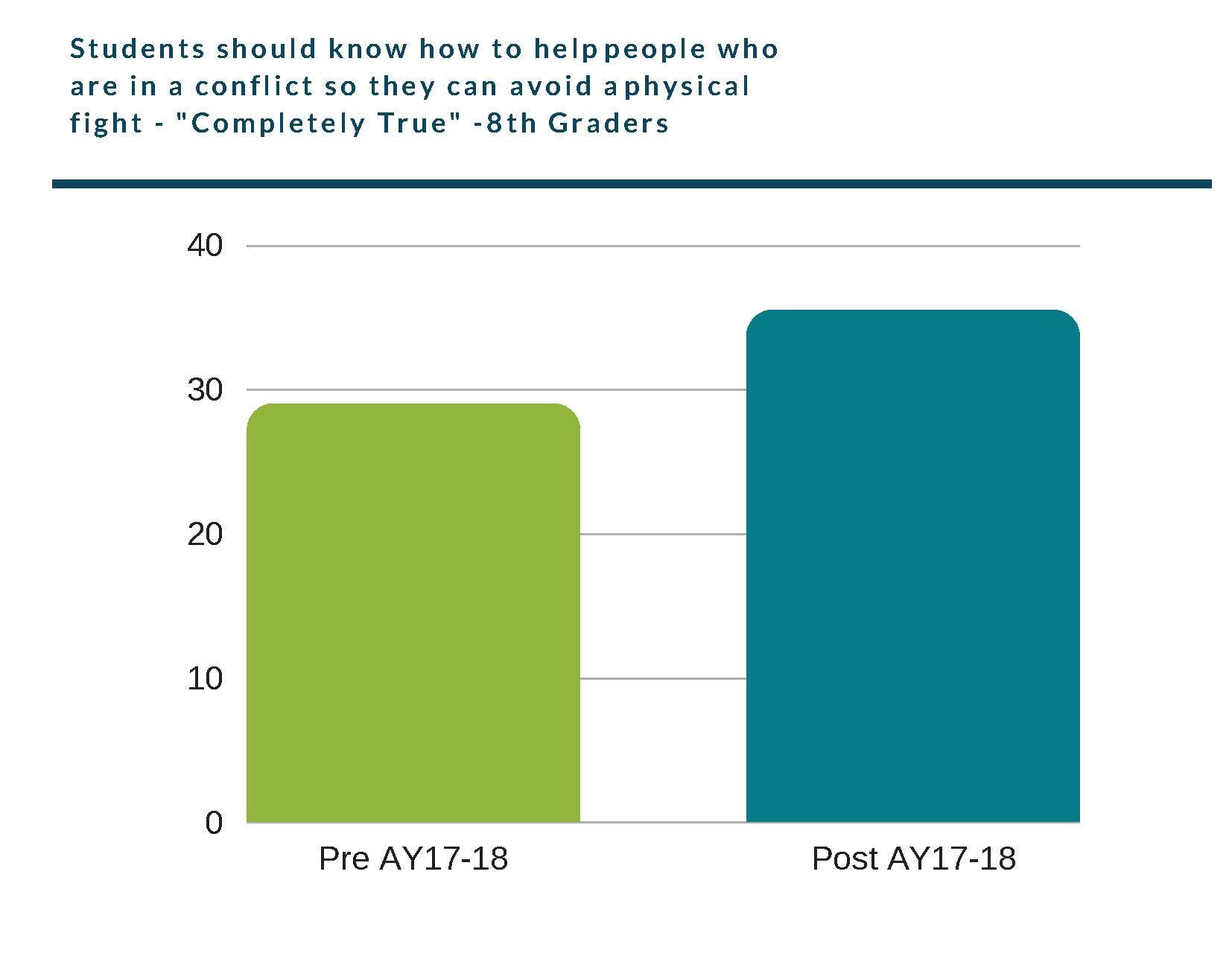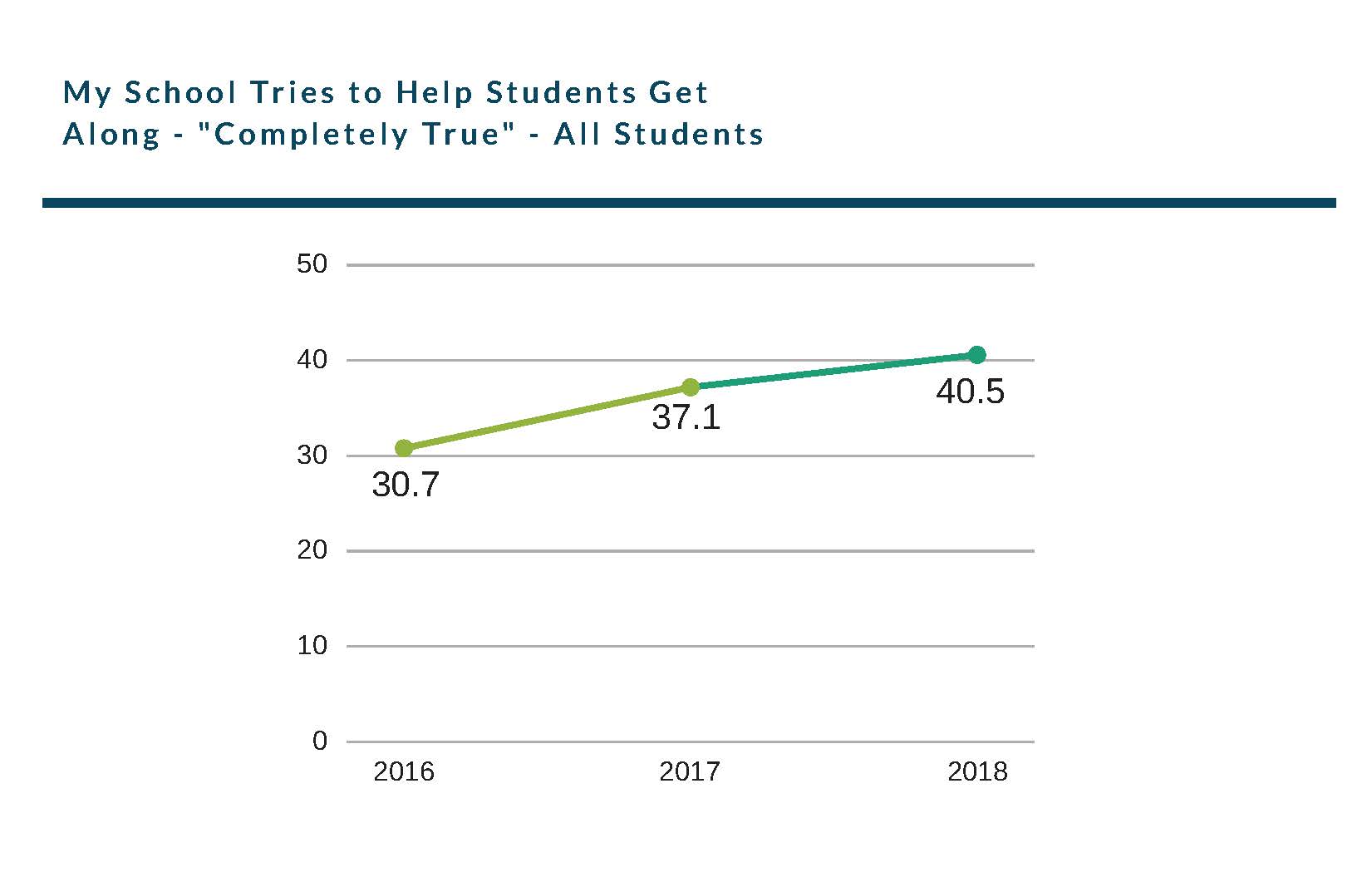Recently, Dr. Edward Curammeng, an independent evaluator from California State University, Dominguez Hills (CSUDH), released a report that evaluates the Whitaker Peace & Development Initiative’s (WPDI) Domestic Harmonizer Program (DHP) at Carnegie Middle School in Carson, California. This program was co-created by WPDI and CSUDH with the aim of reducing school violence while enhancing student communication, problem-solving, and collaboration. The report highlights this three-year program for middle schools and objectively evaluates the strengths and challenges it faces. Notably, Dr. Curammeng finds that the “program is unique to the field because it is the only program that integrates Conflict Resolution Education (CRE) with core subjects of math, science, English, and social studies. The DHP aims to do the critical work of improving schools for all students, teachers, and staff.”
The goal of this independent review is to ascertain the impact of the program during its pilot phase as well as help the program developers make necessary changes based on evidence gathered from an unbiased reviewer. This evaluation plan was approved by the Los Angeles Unified School District. The report compiles two years of data about the program through focus groups with students, peer mediators, and teachers as well as anonymous school-wide surveys. It reflects the most comprehensive and objective assessment of the DHP to date.
The report highlights the impact of the program thus far and holds several conclusions as well as recommendations for improving the DHP. For example, the report underscores the implementation of the program’s CRE curricula, which is infused with California’s Common Core Standards across the school, the training of 50 educators, the establishment of a formal peer mediation program with over 40 trained students, and over 20 conflicts resolved through peer mediation. Furthermore, Dr. Curammeng finds that “many students shared they noticed how CRE provided skills, strategies, and scenarios to temper how they engage with others when a conflict arises. This points to the continued teaching and learning for the Peer Mediators at Carnegie as well as the need for a more visible DHP presence at Carnegie.” Another notable finding highlights that “students that participated in DHP gained important skills and practices to utilize CRE and offer a much-needed space for students to shift how they would have otherwise reacted to conflict with peers.” However, “shifts in behaviors, attitudes, and overall campus climate take time,” so the true impact of WPDI’s DHP may yet be realized.
The program has achieved significant results, grounded in data. As the figure below shows, since the start of our program, there are more students who now believe it to be “completely true” that ‘students should know how to help people who are in conflict so they can avoid a physical fight.”

Large numbers of students also now believe it is “completely true” that their “school tries to help students get along.”

As the report concludes, “CRE can have a profound impact on students as well as teachers, and schools have a wonderful opportunity to transform the ways students connect, respond, and engage with each other and their world.”
This report has brought to light the areas where the program can be strengthened and modified this year, and in future years, as WPDI expands the DHP to additional schools in Southern California alongside our partners, CSUDH and the Verizon Foundation. For more on WPDI’s Domestic Harmonizer Program, please visit our website and follow us on social media.
